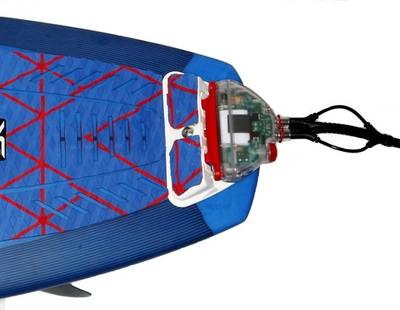Hawaii Shark Attacks: 'Shark Shield' Should Prevent Them
Surfers, kite surfers, swimmers, snorkelers — they've all suffered attacks by sharks in Hawaii this year, but Shark Shield , the Australian manufacturer of a patented shark deterrent, believes attacks could have been avoided if its electrical shark deterrent, the Shark Shield FREEDOM7, had been worn.
The company’s electrical shark deterrent is the result of more than 20 years of scientific research by some of the world’s leading experts in sharks including the KwaZulu-Natal Shark Board of South Africa.
The result of these two decades of research and development is the Shark Shield FREEDOM7 , the only scientific proven and independently tested electrical shark deterrent designed to reduce the risk of an unwanted shark encounter.
In 2012, scientists from SARDI (South Australian Research Institute) released detailed research where they conducted 116 static bait trials on the Shark Shield FREEDOM7 near the Neptune Islands of South Australia and 189 dynamic trials using seal decoy tows near Seal Island, South Africa.
In the static test, the product significantly increased the time for sharks to take the bait. Once the device was activated, observers noticed a decrease in interactions within two meters. Throughout the seal decoy tow tests, there were no breaches and only two at-surface interactions when the device was turned on. With the device turned off, there were 16 breaches and 27 surface interactions.
Amanda Wilson, Managing Director of Shark Shield, says the deterrent works on the principle that all chondrichthyes — sharks, rays, skates and chimeras — possess ampullary receptors in their heads which are used to find food, communicate and find a mate. These receptors are tuned to low-frequency fields but they only operate when in close proximity with food — or a diver.
“Strapped to the ankle of a swimmer or diver, the Shark Shield emits an electromagnetic field between two electrodes that disturbs these receptors with what has been described as a lightning fast pain of whale-like proportions,” says Amanda, adding that there are no known long-term adverse effects to the shark from the electrical field, but the discomfort is enough for it to deter a shark from approaching a swimmer or diver.













